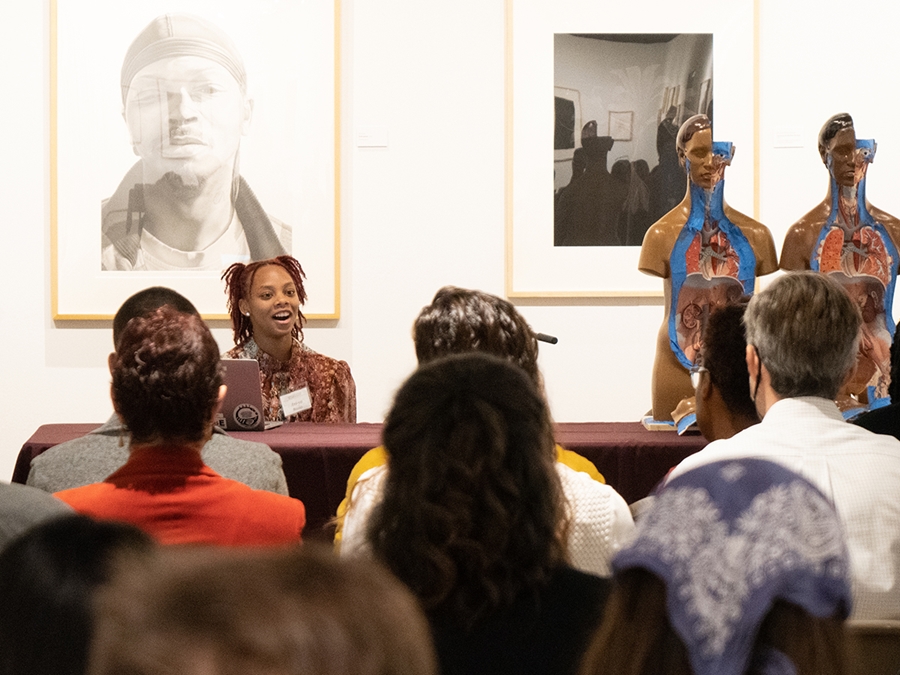
Ani-ya Beasley is a sophomore at the U of A, majoring in African and African American studies, biology and biomedical engineering while on a pre-medical track. On campus, she serves as an ambassador for African and African American studies, community chair of Distinguished Lecture Committee and as a member of the Diversity and Inclusion Council.
In early November, Beasley attended The Legacies of American Slavery conference at Centenary College in Shreveport, Louisiana. The conference sought to bring together academics, health practitioners, students and community members to discuss how the legacies of American slavery continue to affect the health of communities and strategies that can be used to overcome them. Panels and workshops offered an interdisciplinary perspective, addressing the intersection between the legacies of American slavery and health and community-facing approaches.
Beasley presented her research titled, "The Creation of the Atlantic Medical Complex," which focuses on how early maroon communities not only co-opted the environment as a source of resistance and survival, but through their avid uses of herbal practices, became significant contributors to the early field of medicine. Beasley, when asked about her conference experience, noted, "The Legacies of American Slavery conference at Centenary College was a great opportunity for me to expand on my knowledge of the connection between medicine and the Black diaspora. I met amazing people who were from many different disciplines who inspired and encouraged me with my own research. I hope to be invited again!"
Beasley's contribution to this conference gathering is a testament to the quality of scholars and scholarship produced by African and African American studies, said associate professor Caree Banton, director of the program. She further notes that, as is evident with Beasley, even students who intend to go to medical school can greatly benefit from an African and African American studies major or minor.
Topics
Contacts
Caree Ann Marie Banton, associate professor
Department of History
479-575-4086,